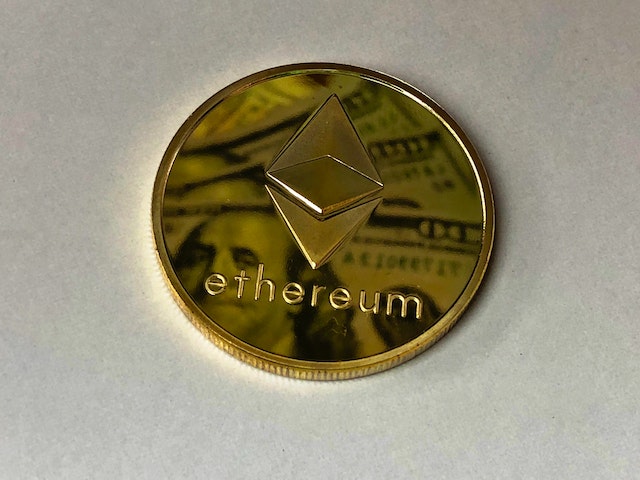What is Ethereum?
Ethereum is a programmable blockchain. It’s basically a global computer that anyone can use. It’s like the internet, except instead of connecting people, it connects computers. And instead of hosting websites, it runs programs.

Introduction
Ethereum is a decentralized platform that runs smart contracts: applications that run exactly as programmed without any possibility of fraud or third party interference.
Ethereum is a public blockchain-based platform that enables the development of decentralized applications (dapps) and smart contracts. It provides a decentralized virtual machine, the Ethereum Virtual Machine (EVM), which can execute scripts using an international network of public nodes. Ethereum also provides a cryptocurrency token called “ether”, which can be transferred between accounts and used to compensate participant nodes for computations performed. “Gas”, an internal transaction pricing mechanism, is used to mitigate spam and allocate resources on the network.
Ethereum was initially proposed by Vitalik Buterin in 2013. The development was funded by an online crowdsale that took place between July and August 2014. The system went live on 30 July 2015, with 11.9 million coins “premined” for the crowdsale. This accounts for about 13 percent of the total circulating supply.
In 2016, as a result of the collapse of The DAO project, Ethereum was split into two separate blockchains – the new separate version became Ethereum (ETH), and the original continued as Ethereum Classic (ETC). The value of the Ethereum currency grew over 13,000 percent in 2017.
What is Ethereum?
Ethereum is a decentralized platform that runs smart contracts: applications that run exactly as programmed without any possibility of fraud or third party interference.
Ethereum is a programmable blockchain. It allows users to create their own applications (called smart contracts) that run on the Ethereum network. Ethereum uses Ether as its currency, which can be used to pay for transaction fees and computational services.
The beauty of Ethereum is that it enables developers to create anything they can imagine without any limits or restrictions.
How Ethereum Works
Ethereum is a decentralized platform that runs smart contracts: applications that run exactly as programmed without any possibility of fraud or third party interference.
In the Ethereum protocol and blockchain there is a price for each operation. The general rule is that the more complex the operation is, the more “gas” it requires. The total amount of gas used in a transaction is paid to the miners who confirm it.
These fees are collected in order to prevent denial-of-service attacks and spam on the network. In addition, they are used to pay for computation within each block produced by miners on the network. This way, even if someone creates thousands of fake transactions, they will still have to pay for each one they make, making it economically infeasible to attack the network.
The History of Ethereum
Ethereum is a decentralized platform that runs smart contracts: applications that run exactly as programmed without any possibility of fraud or third party interference.
Ethereum was first proposed in 2013 by Vitalik Buterin, a Russian-Canadian programmer. ETH is the native currency of the Ethereum network and it is used to pay transaction fees and computational services.
Ethereum significantly differs from Bitcoin in that it was designed to be adaptable and flexible. Ethereum’s smart contracts can be used to create decentralized applications (dApps) which can be run on the Ethereum Virtual Machine (EVM), a decentralized platform that executes code exactly as it is written.
The vision of Ethereum is to create a “world computer” that would go beyond the capabilities of current computers and would allow for the creation of entirely new decentralized applications. To achieve this, Ethereum has been designed with a number of features that make it different from other blockchain platforms.
The Future of Ethereum
Ethereum is a decentralized platform that runs smart contracts: applications that run exactly as programmed without any possibility of fraud or third party interference.
Ethereum is how the Internet was supposed to work. It’s a censorship-resistant platform where developers can build next-generation applications.
The Ethereum protocol is powered by a cryptocurrency called Ether. Ether is like “digital oil” that fuels the Ethereum network. People all over the world are using Ether to power the next generation of applications.
Ethereum is still in its early stages, but it has the potential to change the way we use the Internet.
Applications of Ethereum
Ethereum is a decentralized platform that runs smart contracts: applications that run exactly as programmed without any possibility of fraud or third party interference.
In the Ethereum protocol and blockchain there is a price for each operation. The general idea is that users will pay each other for services on the network. These services can be anything from computational power, storage space or content streaming.
The native currency for the Ethereum network is called Ether. Ether can be bought and sold for other currencies like US dollars or Euros, and it is also used to pay for transaction fees and computational services on the Ethereum network.
Ethereum is still in its early stages, but it has already attracted a large and active community of developers working on a wide range of applications.
Ethereum vs Bitcoin
Bitcoin and Ethereum are two of the most popular cryptocurrencies, but they work in very different ways. Bitcoin is designed as a peer-to-peer electronic cash system. It’s a decentralized currency that doesn’t rely on banks or financial institution to facilitate transactions. Ethereum, on the other hand, is a decentralized platform that runs smart contracts. These contracts are run on the Ethereum blockchain, which is a public blockchain that anyone can access.
Ethereum Price
As digital innovation and disruption continue to upend traditional business models, a growing number of industries are turning to blockchain technology as a way to streamline outdated processes and create new opportunities. One of the most promising applications of blockchain is in the world of online payments.
Ethereum is a decentralized platform that runs smart contracts: applications that run exactly as programmed without any possibility of fraud or third party interference.
Ethereum is used to run decentralized applications (dapps) on its blockchain. These dapps can be built on Ethereum’s decentralized app store, called ETHApps, which is similar to Apple’s App Store or Google Play Store.
ETHApps allows anyone to build and deploy their own dapp without having to go through a central authority. This makes it possible for developers to create new types of decentralized applications, which can then be used by anyone in the world.
Ethereum’s price is closely linked to the success of these dapps. When a dapp becomes popular and starts being used by many people, the demand for Ethereum increases, driving up its price.
The Ethereum price is also affected by factors such as news events, government regulations, and global economic trends.
Ethereum Wallets
Ethereum wallets are used to store, send and receive Ether, the native currency of Ethereum. They also enable the user to access decentralized applications (Dapps) on the Ethereum blockchain. Although Ether is only a token, it behaves in many ways like a real currency. As a result, people usually refer to Ether as cryptocurrency.
There are many different types of Ethereum wallets available, each with their own set of features. Some wallets are designed for ease of use, while others offer more advanced features for experienced users. You can even create your own custom wallet using Ethereum’s open-source software.
Before you can start using an Ethereum wallet, you’ll need to choose which one is right for you. To help you make your decision, we’ve put together this guide to the different types of Ethereum wallets.
FAQs
1. What is Ethereum?
Ethereum is a decentralized platform that runs smart contracts: applications that run exactly as programmed without any possibility of fraud or third party interference.
2. What are Ether tokens?
Ether tokens are the currency unit of Ethereum. They are necessary for paying transaction fees and executing smart contracts on the Ethereum platform.
3. How can I buy Ether tokens?
You can buy Ether tokens with fiat currency (like USD) or cryptocurrency (like BTC) on cryptocurrency exchanges. You can also earn Ether tokens by participating in Ethereum’s proof-of-work mining system.
4. How does Ethereum work?
The Ethereum platform consists of a blockchain, a virtual machine, and a programming language. The blockchain is a decentralized ledger of all transactions that have ever occurred on the network, and the virtual machine is a decentralized execution environment that can run smart contracts. The programming language enables developers to write and deploy smart contracts on the Ethereum platform.
5. Who created Ethereum?
Ethereum was founded by Vitalik Buterin, Mihai Alisie, Anthony Di Iorio, and Charles Hoskinson in 2014.

